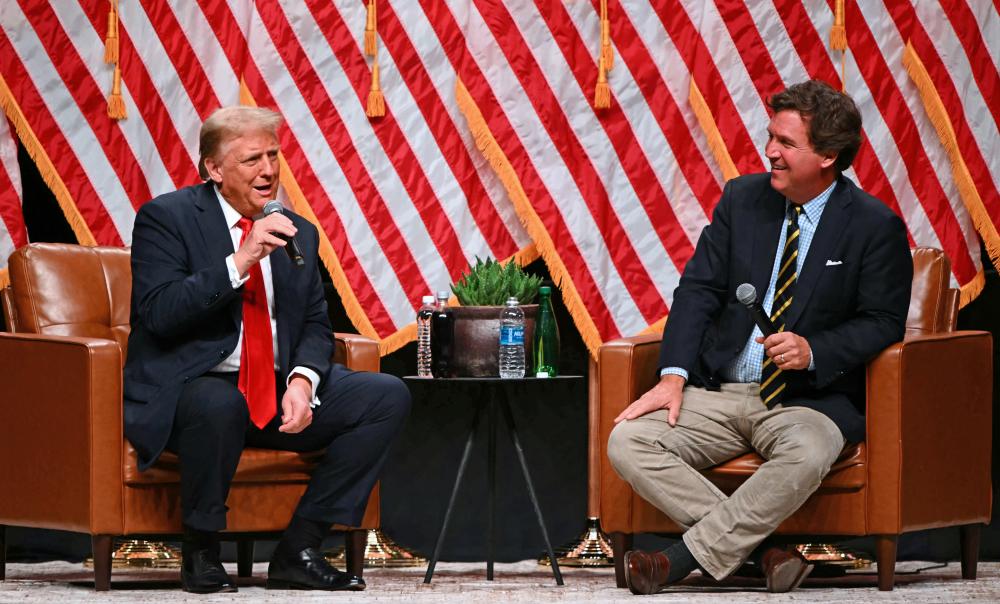Donald Trump made headlines during his recent campaign events as he expressed strong opinions about potential members of his future administration. While campaigning in Nevada, he indicated that if he were to win the presidency again, he would appoint vaccine skeptic Robert F. Kennedy Jr. to oversee health issues, including women’s health. This marked a notable pivot towards considering influential figures like Kennedy and Elon Musk, whom he referred to as having the potential for significant roles in his prospective administration. His comments came amidst an atmosphere of heightened political tension, particularly with former Republican congresswoman Liz Cheney, who is now supporting Kamala Harris. Cheney retaliated against Trump’s incendiary remarks—which echoed threats—by asserting that such language is characteristic of dictatorial leaders, further emphasizing that “Women will not be silenced,” highlighting the broader implications of Trump’s rhetoric.
Trump’s discussions with conservative broadcaster Tucker Carlson also showcased his controversial statements regarding Cheney, whom he labeled a “war hawk” deserving of violent threats. He suggested that Cheney should face simulated gunfire to gauge her response. This part of the discussion reflected Trump’s willingness to engage in rhetoric that some might view as incendiary, escalating the current political discourse to alarming levels. Notably, he dismissed previous attempts by Carlson to delve into Trump’s policy frameworks, favoring instead a tirade against adversaries, particularly targeting individuals such as Harris, whom he criticized for her intelligence. This indicates a deliberate strategy to energize his base with aggressive rhetoric rather than substantive policy discussion.
Trump’s framing of political opponents as an “enemy from within” further underscores a narrative that positions him against a supposedly treasonous faction within the political landscape, risking a transformation of normal political discourse into a battleground of accusations. The implications of this language are profound, as it suggests a call to arms against perceived internal threats, which Harris has seized upon to label Trump as a fascist. Trump has long positioned himself as a champion against these alleged threats; however, his insinuation of cheating in the upcoming election—if he were to lose—introduces an echo of past electoral fraud claims, establishing a predisposition for contesting the legitimacy of election results.
Moreover, Trump’s statements in Nevada highlighted his assertions regarding leading in the polls, which he claimed should result in victory, contingent upon avoiding “cheating.” This rhetoric aims to establish a foundation for possible accusations of electoral fraud, which have become a hallmark of his campaigning style since the 2020 election. While Trump portrays himself as confident in winning, his suggestions of possible interference underscore a narrative that positions him as under threat from both external and internal adversaries, thereby justifying extreme measures against those he deems enemies.
Interestingly, Howard Lutnick, co-chair of Trump’s transition team, offered a contrasting view on the inclusion of figures like Musk and Kennedy in Trump’s potential cabinet. He downplayed the odds of them taking on significant roles within the government, suggesting that their influence would likely manifest outside official positions. Lutnick characterized Musk as more of a supportive ally than a bureaucratic player and suggested that Kennedy, while focused on health data, wouldn’t be dropped into a top health-related role. This introduces an element of inconsistency in Trump’s narratives about potential appointments, particularly concerning Kennedy’s position in health matters.
Nevertheless, Trump’s later comments regarding having Kennedy manage “all of the different reasons” surrounding health issues, particularly women’s health and potentially children’s health, illustrate a willingness to defy conventional expectations about health leadership within government. This decision could potentially alarm public health advocates, especially given Kennedy’s history of opposing vaccines, which represents a clear divergence from the ongoing public health discourse. As these political dynamics evolve, it becomes clear that Trump’s ability to secure support from influential figures in his administration could shape the political landscape significantly, reflecting an intersection of health, politics, and national identity amidst a volatile election season. Such developments merit ongoing scrutiny as they signal larger shifts in the intersection of scientific consensus and political endorsement in America.

